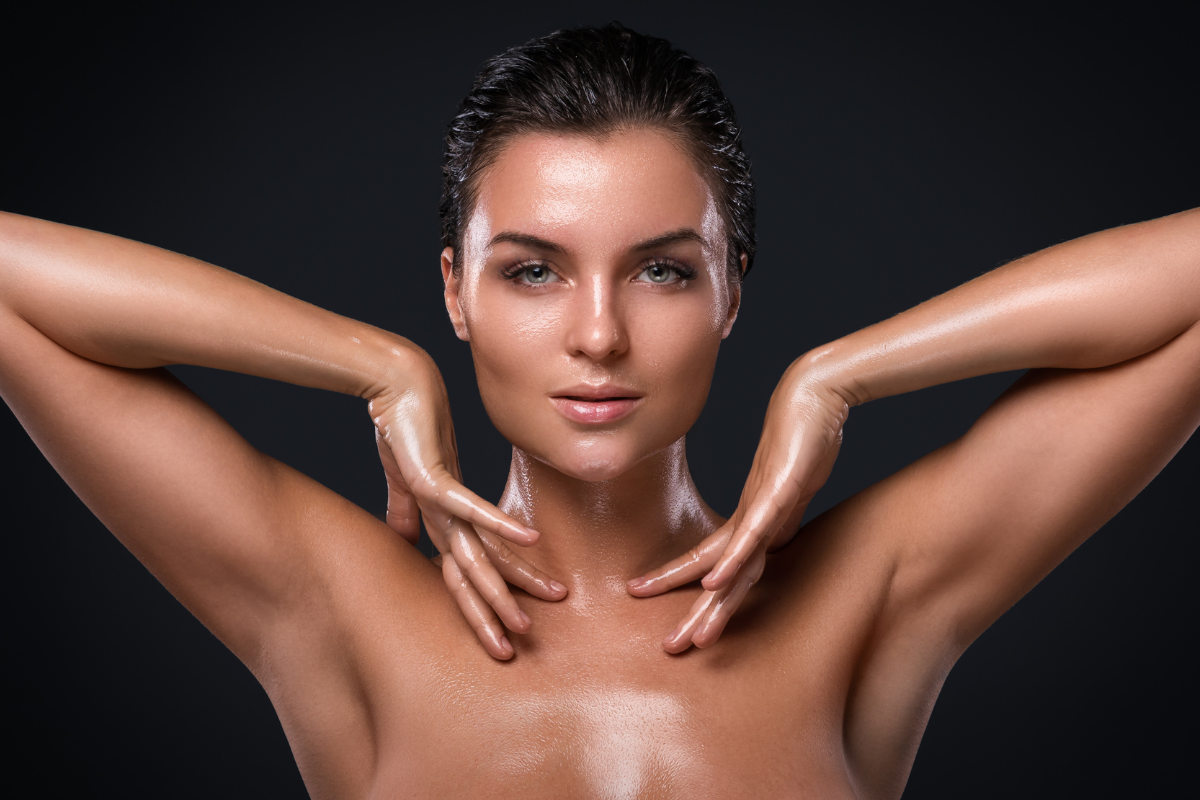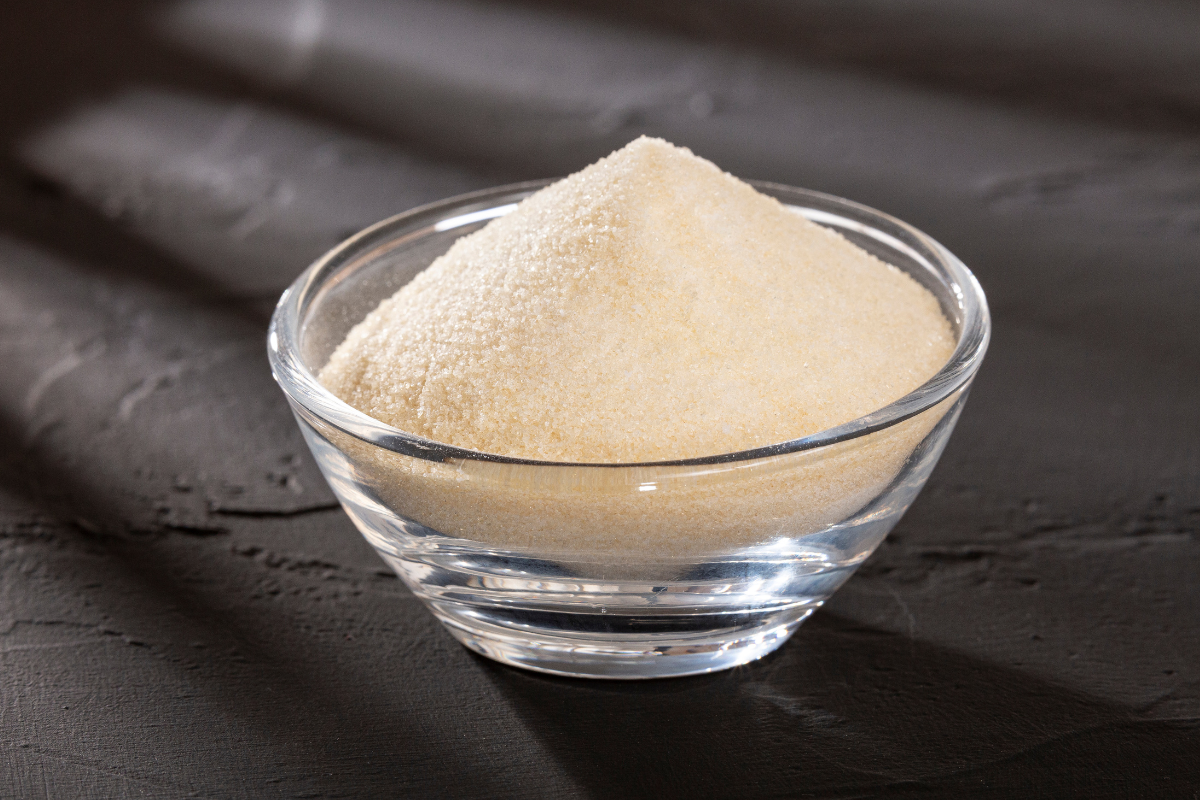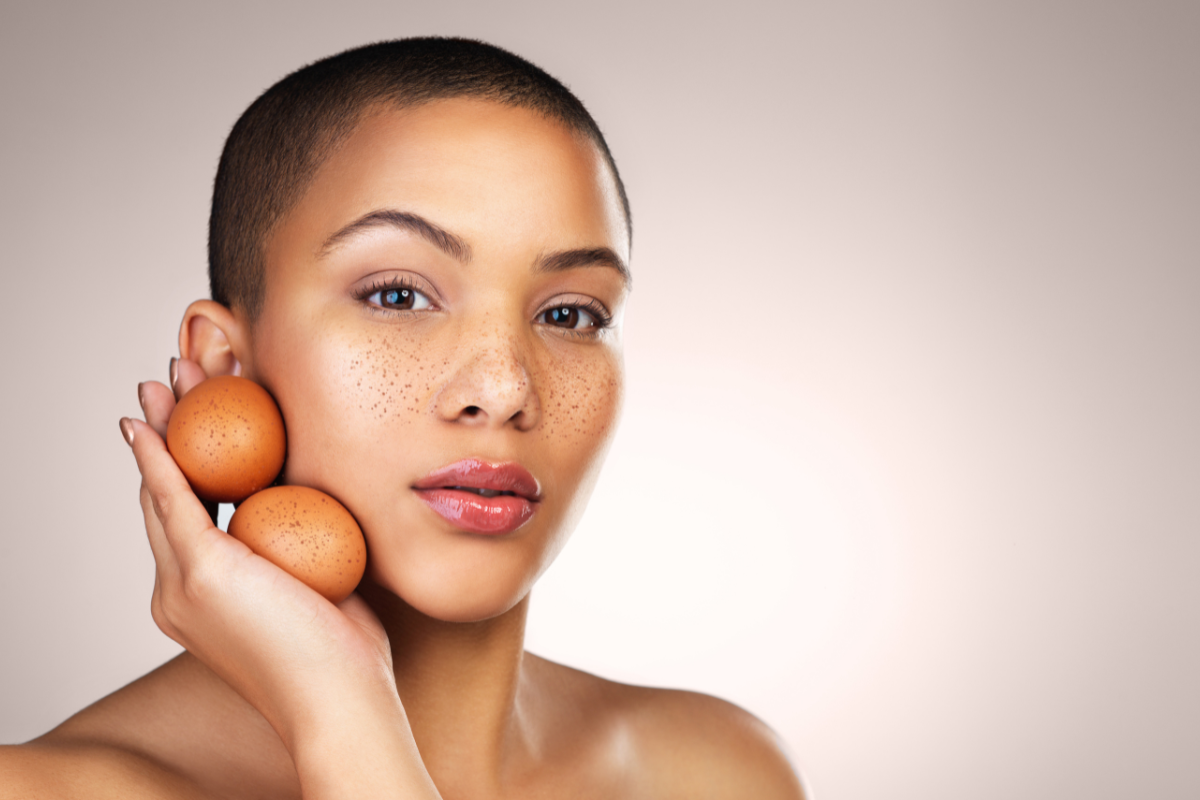Collagen & vitamins for the skin

Collagen & vitamins for the skin
When building a natural skin care routine, most of us tend to focus on moisturizers, day and night creams, serums, and other skin care products. While these are definitely important, the real secret to good skin health lies beneath the skin's surface. Getting a variety of vitamins and other important substances for your skin—either through your diet or through supplements—is at least, if not more, important than the products in your bathroom cabinet.
So which vitamins are good for the skin, and which vitamins are good for dry skin or other specific skin problems, such as acne, aging or redness? Here's everything you need to know.
Why are vitamins important for skin health?
Vitamins are absolutely critical to maintaining overall health and well-being, and in recent years more and more research has shown that vitamins play an integral role in your skin health. Other topics such as collagen has also been shown to have skin-strengthening properties and has been linked to everything from improvements in skin elasticity to reductions in cellulite and stretch marks.
So what are vitamins? Vitamins are a group of organic compounds that are necessary for growth and development as well as for many other aspects of health, including skin health. Certain vitamins are involved in cell renewal, the body's production of collagen, as well as other factors that are important for maintaining healthy skin.
If you take good nutritional supplements in combination with a nutritious diet and otherwise have a healthy lifestyle, your daily "skin care routine" can be taken to the next level, to keep your skin healthy and radiant. Read on to learn more about the best supplements and vitamins for skin.
What are the best supplements for skin?
- The collagen
- Fish oil and krill oil
- Vitamin B7 – Biotin
- Vitamin A
- Vitamin C
- Vitamin E
- Vitamin D
Collagen for youthful skin
As the most abundant protein in the body, collagen plays a central role in skin health. However, as we age, collagen production begins to decline, resulting in wrinkles and sagging skin. Collagen is one of the best dietary supplements for anti-aging the skin. Collagen, which helps keep the skin soft and supple.
In fact, a study from Germany even found that supplementing with collagen peptides helped increase skin elasticity and hydration over a period of just eight weeks. Another study published in the Journal of Medical Nutrition & Nutraceuticals reported that collagen could also reduce the depth of skin wrinkles.
Fish oil and krill oil for healthy skin
Fish oil and krill oil are a superb source of omega-3 fatty acids, which are a type of healthy fat with powerful anti-inflammatory properties. Fish oil and krill oil top the charts as one of the best supplements for glowing skin due to its omega-3 content, which can help soothe and reduce inflammation, as well as protect the skin from damage.
According to a review published by the Department of Dermatology Sciences at the University of Manchester, omega-3 fatty acids can help protect the skin from ultraviolet damage, helping to maintain healthy skin and potentially protect against skin cancer .
Another study from California found that fish oil intake was associated with improvements in inflammatory acne, suggesting that fish oil may be a beneficial dietary supplement to take if you have acne or skin inflammation.
Biotin for fresh skin
Biotin is a water-soluble B vitamin that is often marketed as one of the best vitamins for hair, skin and nails. Although rare, a deficiency of this essential vitamin can result in hair loss and scaly, red rashes on the skin, which is a well-deserved reason to say that it is one of the most important vitamins for hair, skin and nails.
Although research is still limited regarding the effectiveness of this vitamin in its use as one of the most important supplements for radiant skin and healthy hair, it is clear that a deficiency can be harmful to your skin. Be sure to include plenty of biotin-rich foods in your diet, such as eggs, salmon, avocados, sweet potatoes and walnuts.
Vitamin A counteracts skin problems such as acne
Vitamin A is one of the first "defense players" against skin problems such as acne and aging skin. In fact, a study published in the journal Medical Archives showed that a low dose of vitamin A tablets was effective in reducing moderate acne over a period of three months.
A number of other studies have shown that retinol, a derivative of vitamin A, can be effective in fighting the signs of aging when applied directly to the skin.
Excessive consumption of vitamin A can lead to toxicity and increase the risk of serious side effects such as birth defects. Try to get vitamin A primarily through food, or choose a dietary supplement that contains beta-carotene - which is a precursor to vitamin A (provitamin A), to avoid the negative effects that a dietary supplement with pure vitamin A can cause. Beta-carotene only forms vitamin A in the body when needed and thus does not produce the same side effects as pure vitamin A. Beta-carotene, which is found in a lot in e.g. carrots also act as an antioxidant in our bodies and protect our cells.
Vitamin C for the skin's collagen
Vitamin C is known for its ability to fight free radicals, and prevents cell damage and oxidative stress in the body. Not only that, but as one of the best skin vitamins, it can also help protect skin from sun damage and stimulate the synthesis of collagen to help repair wrinkles and keep skin smooth and elastic.
As always, it is best to get vitamin C through your diet, the vitamin is found in citrus fruits and vegetables. You can also opt for vitamin C supplements or use a serum or skin cream containing vitamin C for the face and body.
Vitamin E for skin health
Vitamin E has an extensive history as an important skin vitamin and has been used in dermatology for over 50 years. As a main ingredient in both cosmetics and skin care products, research shows that vitamin E helps neutralize free radicals and preserves skin health. Vitamin E also has the property of protecting the skin against sun damage.
Additionally, in addition to promoting skin health, some studies suggest that vitamin E may be one of the most effective hair vitamins available. One study found that supplementing with vitamin E increased the number of hairs in subjects with hair loss by 34.5 percent over an eight-month period, making the nutrient one of the best vitamins for hair growth.
Vitamin D for beautiful and healthy skin
Vitamin D plays an important role in many different aspects of your health, and skin health is no exception. New research shows that vitamin D even has benefits in the treatment of certain skin conditions, such as psoriasis, and then helps with cell growth and maturation.
Unfortunately, the majority of us lack this important vitamin! As one of the best vitamins for radiant skin, immune function, bone health and more, it's important to consider taking a supplement if you're not regularly and annually getting a daily dose of sun, or filling up on vitamin D foods like for example salmon, cod or tuna.
- Tags: Hud/Skin Kollagen/Collagen





